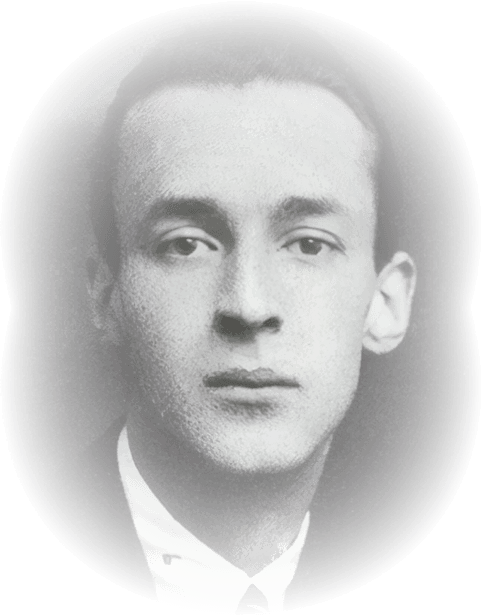
Vladimir Nabokov was the only one who managed to break out of the unnoticed part of his émigré generation and achieve real worldwide fame. However, Nabokov the writer still eclipses Nabokov the poet.
His poetry is less well-known and less well-loved. But it exists and continues to influence poets writing today:
Have the reader, annoyed by the invincibility and excessiveness of Nabokov’s prose, open his poetry. I was once surprised and delighted by his lyricism, with its almost Yesenin-like awe, spontaneity, and even vulnerability. (poet Sergey Gandlevsky)
Nabokov the poet is a completely different literary figure, in which Nabokov the writer is hard to grasp. His prose is full of innovation, originality, subtlety, irony, and snobbery. Nabokov’s poetry is more straightforward and human, free of the constraints of tradition. He is not afraid of being sentimental or even religious.
Nabokov’s writing career began and ended with poems. In 1916, back in St. Petersburg, his first poetry collection, Poems, was published. His last collection was also called Poems and was published posthumously in 1979 (prepared during the author’s lifetime).
Between those two books is Nabokov’s entire life in exile. In 1919, the Nabokovs sailed to Constantinople on a vessel aptly named Hope. In 1922, the family was struck by tragedy. Nabokov Senior was fatally shot in Berlin during an assassination attempt on the politician Pavel Milyukov by right-wing monarchists. Nabokov Junior was then visiting his parents on Easter break from his studies at Cambridge.
Easter
For his father’s death
I see a radiant cloud, I see a rooftop glisten
like a mirror, far away... I listen
to breathing shade, light’s stillicide...
You’re absent — why? You’re dead, and on a day
the humid world is bluish. God’s sacred spring is on her way,
swelling, calling... And you’ve died.
And yet, if every stream anew the wonder sings,
and yet, if every falling golden thaw-drop rings —
if these are not bedazzling lies,
but quivering, dulcet convocations: ‘Rise again’ —
a mighty ‘Blossom!’, then you are in this refrain,
you’re in this splendor, you’re alive!...
Translated by Dmitri Nabokov
By the time he wrote this poem, Nabokov had already been publishing under the pseudonym Sirin (in ancient Russian art and legends, Sirin is a bird of paradise with the head of a virgin). He rose to prominence in 1926 after the release of his novel Mashenka. Critics had different opinions on the new author, but no one could deny Sirin’s talent. Nabokov-Sirin wrote eight novels and published three poetry collections over the next ten years.
After the outbreak of World War II, Vladimir Nabokov and his family moved to the United States. Here he gave up his pseudonym and stopped writing in his native language, switching to English.
My private tragedy, which cannot, and indeed should not, be anybody’s concern, is that I had to abandon my natural idiom, my untrammelled, rich, and infinitely docile Russian tongue for a second-rate brand of English.
Nabokov the writer quickly established his own voice. Nabokov the poet spent his life searching for the right tone. He resorted to hoaxes, signing his works with the names of fictitious poets and then recounting his interactions with them. Apparently, not only did those literary masks amuse Vladimir Nabokov, but they also helped him to better understand and distance himself from Nabokov the poet.
In addition to the poet’s extracting poetry out of his past, he also found it in tragic thoughts about the future. The triple formula of human existence: irrevocability, unrealizability, inevitability — was well known to him. (Vladimir Nabokov, The Gift)
In the poem The Execution, that triple formula resonates in every line.
Monetochka|Mone-tochka

On certain nights as soon as I lie down
my bed starts drifting into Russia,
and presently I’m led to a ravine,
to a ravine led to be killed.
I wake — and in the darkness, from a chair
where watch and matches lie,
into my eyes, like a gun’s steadfast muzzle,
the glowing dial stares.
With both hands shielding breast and neck—
now any instant it will blast!
I dare not turn my gaze away
from that disk of full fire.
The watch’s ticking comes in contact
with frozen consciousness;
the fortunate protection
of my exile I repossess.
But how you would have wished, my heart,
that thus it all had really been:
Russia, the stars, the night of execution
and full of racemosas the ravine!
Translated by Vladimir Nabokov